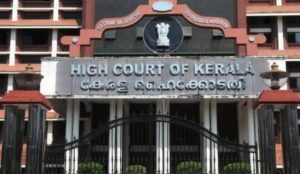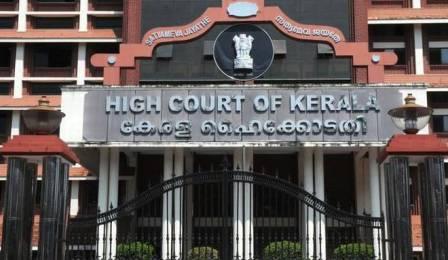Last week, the Kerala High Court severely criticized the recent trend of terming inter-religious marriages as ‘Love Jihad’. The court made these observations in its verdict passed on the petition filed by Anees Hameed seeking to release his Hindu wife Sruthi from the illegal custody of her father.
A Division Bench of the Kerala High Court on November 19 deprecated the recent trend to portray every case of inter-religious marriages as either “love jihad” or “ghar wapsi.”
The Bench, headed by Justice V. Chitambaresh, while disposing of a habeas corpus petition observed: “We are appalled to notice the recent trend in the State to sensationalise every case of inter-religious marriage as either ‘love jihad’ or ‘ghar wapsi’ even if there was platonic love between the spouses before.”
The court cautioned that “every case of inter-religious marriage shall not be portrayed on a religious canvass to create fissures in the communal harmony, otherwise existing in God’s Own Country.”
Taking a dim view of the forcible conversion and reconversion centres in the State, the Bench ordered that “any centre for forcible conversion and reconversion has to be busted by the police, whether it be Hindu, Muslim, or Christian, lest it offends the constitutional right.”
The court observed that Article 25(1) of the Constitution guaranteed to every citizen the right to freely profess, practice, and propagate any religion, which could not be trampled upon by subversive forces or religious outfits.
The courts made the observations in its verdict passed on a petition filed by Anees Hameed of Kannur seeking to release his Hindu wife Sruthi from the illegal custody of her father. According to him, he fell in love with her while studying in college. Sruthi left her parent home on April 16, 2017, along with Anees to Delhi. On a complaint of her father, the police took the couple on June 16 into custody and produced them before the magistrate court, Payyannur, Kannur.
Sruthi was then handed over to her parents, who took her to a yoga centre in Thripunithura in order to insulate her from Anees and persuade her to snap her relationship with Anees.
The court pointed out that Sruthi had been in love with Anees for long, which had “blossomed into a permanent relationship leading to a martial tie.” The certificate of marriage issued by the marriage officer, Taliparamba, under the Special Marriage Act, 1954, bore ample testimony to her status as a legally wedded wife.
The court was all praise for the extraordinary courage shown by Sruthi to live up to her conviction and decry the attempt of her parents to deflect the course of justice by misleading litigations. Sruthi was a postgraduate and mature and had discovered her life partner in Anees and she could not be detained against her wishes either by her parental home or the yoga centre.
Ordering to set her at liberty, the court said that it was for the couple to decide their future course of action without any interference from her parents or from any concerned whatsoever, which the police shall ensure.



It is high time that more people speak out on such issues. Inter-caste and inter-religious marriages are one way in which this country will get stronger. But on the other hand, given the complexity of India, there are many dimensions to the issue.